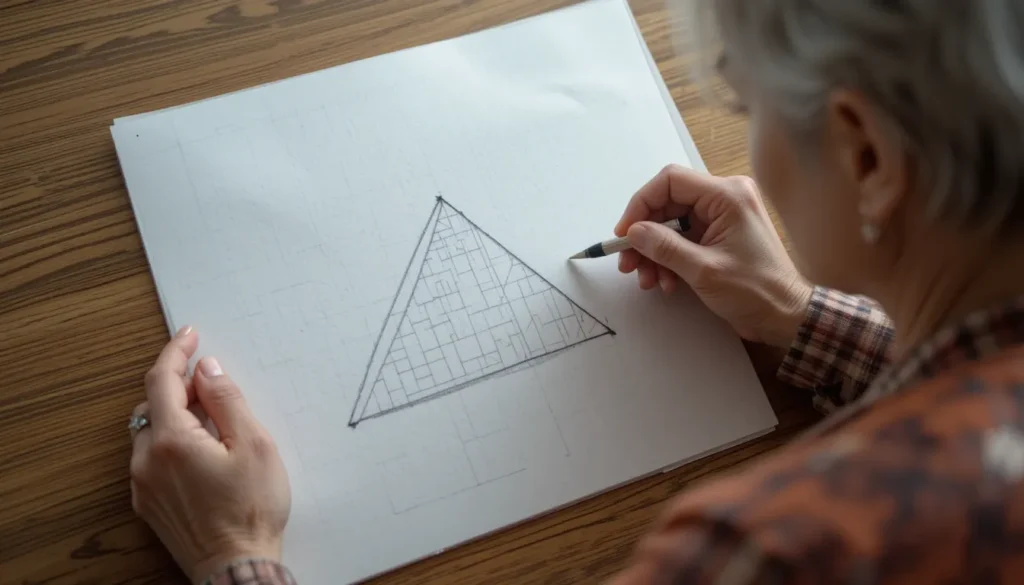You’ve probably heard it all before. Cut carbs. Skip breakfast. Avoid fat. Eat every three hours. Drink meal shakes. But here’s the truth—after age 60, most of these diets fall apart. They may work for younger people, but your body plays by different rules now. It processes food slower.
It absorbs nutrients differently. It reacts more to sugar, salt, and preservatives. So why keep following plans that don’t fit?
What if you could follow a way of eating that helps older people stay strong, alert, and full of life—without tracking calories or skipping meals? That’s where the Mediterranean diet comes in. It’s not a fad.
It’s a time-tested way of eating used by some of the healthiest, longest-living people on Earth. And it’s surprisingly simple to follow.
In this guide, you’ll discover exactly how seniors can use Mediterranean eating to feel better, stay independent, and enjoy food again. And by the end, you’ll have a step-by-step plan to start today.
The Foods That Help You Age Better
The Mediterranean diet is more than a list of ingredients—it’s a way of choosing foods that your body can actually use well. And at your age, that matters more than ever. Your heart, brain, joints, and immune system all change as the years pass. Your food can either support those changes or work against them.
The Mediterranean way focuses on food that heals instead of harms. Here’s what’s in:
- Vegetables and fruits every day – These give your body the vitamins, fiber, and antioxidants it needs to fight disease and keep your energy up.
- Whole grains – Brown rice, oats, barley, and whole wheat help keep your blood sugar steady and your digestion regular.
- Olive oil – This healthy fat fights inflammation, helps your memory, and protects your heart.
- Fish and seafood – Full of omega-3 fats that help your brain, joints, and eyes stay sharp.
- Nuts and seeds – These offer protein, healthy fats, and minerals in a tiny, satisfying snack.
- Beans and lentils – Great for your heart and gut, they give you protein without the heavy fat in meat.
- Herbs and spices – They flavor your food without extra salt.
And what’s out? Processed snacks, fried food, soda, white bread, red meat, and sugar-filled desserts. These foods add stress to your system and increase the risk of diseases that become harder to manage with age.
Each healthy choice builds a stronger body. Each unhealthy one pulls it down. The Mediterranean diet gives you more wins, more protection, and more energy—without you needing to be perfect.
Five Small Changes That Create Big Results
You don’t need to toss out your pantry or stop eating the things you enjoy. Just make a few smart swaps. These small changes make a big difference over time. Let’s walk through them.
1. Trade butter for olive oil
You don’t have to give up flavor to stay healthy. Olive oil works in salad dressings, cooking, baking, and dipping. Use cold-pressed, extra virgin olive oil. It helps reduce inflammation and supports heart and brain health. Keep a small bottle on the table to remind you to use it daily.
2. Eat fish instead of red meat twice a week
Red meat can raise your cholesterol and blood pressure. But fish—especially salmon, sardines, or trout—can protect your brain and joints. Grill or bake them with lemon, garlic, and herbs. If fresh fish is too expensive, use canned or frozen versions.
3. Pick whole grains instead of white carbs
White bread, white rice, and regular pasta turn to sugar in your body. Whole grains break down slower. This helps you avoid sugar crashes and keeps your energy steady. Try brown rice, oats, whole grain pasta, or quinoa.
4. Replace desserts with fruit and nuts
You don’t have to stop enjoying sweets. But swap cakes, cookies, or ice cream with sliced apple and a few walnuts, or Greek yogurt with berries. These keep your blood sugar in check while giving your body nutrients.
5. Use herbs and lemon instead of salt
Too much salt raises your blood pressure and makes your body hold water. You can still have tasty meals by using herbs, garlic, lemon juice, pepper, or vinegar. These flavors wake up your food and protect your health.
Try one swap each week. Your taste buds will adjust, and soon you’ll prefer the new versions.
How This Diet Helps You Feel Younger
The biggest change isn’t just what you eat. It’s how you feel after. Most diets leave you hungry, tired, or stressed. But with Mediterranean eating, seniors report feeling full, light, and clear-headed.
Here’s what many people notice:
- Better digestion – More fiber from fruits, vegetables, and grains helps keep you regular and reduces bloating.
- Steady energy – No more energy crashes or mid-day slumps. Whole foods keep your fuel steady all day.
- Sharper thinking – Healthy fats and fewer processed carbs support brain health.
- Improved sleep – No late-night indigestion or sugar highs to interrupt rest.
- Less joint pain – Fewer inflammatory foods help reduce swelling and stiffness.
And maybe best of all—you enjoy your food again. Mediterranean meals are full of color, flavor, and variety. You stop feeling like you’re on a diet. You feel like you’re living well.
This diet is not about removing joy. It’s about protecting the life you’ve worked hard to build.
How to Start and Stick With It at Any Age
Getting started with the Mediterranean diet doesn’t have to feel hard. You don’t need to throw out all your food or follow a strict plan. You don’t have to eat strange dishes or count everything you eat. You only need a simple system that fits your life.
That’s how real change begins—when the steps feel clear and doable. This section will show you how to build a plan that sticks, no matter your age or lifestyle.
Let’s start with one clear rule: don’t try to be perfect. You don’t need to fix every meal. What you need is a weekly rhythm. Two fish dinners. Three meatless days. Two days with chicken or turkey. Add vegetables and fruits every single day.
Use olive oil and a handful of nuts daily. That’s it. Write this on a calendar or stick a note on your fridge. Let it guide you. You’ll feel progress without the stress of planning everything.
Now, make your kitchen work for you. Fill it with foods that make healthy meals easy. Stock up on canned beans and lentils. Keep whole grain pasta and oats on your shelf. Store tuna or sardines in your pantry.
Buy frozen spinach, broccoli, or peppers so you always have vegetables ready. Keep garlic, onions, lemons, and herbs nearby. Add plain Greek yogurt, fresh or frozen fruit, and some unsalted nuts. These foods don’t go bad fast. They’re easy to prepare. They save you time, money, and energy.
When meals are simple, you’re more likely to follow through. You don’t need long recipes. You don’t need fancy ingredients. Just use what’s in your kitchen. For lunch, try whole grain toast with mashed avocado and tomato slices.
For dinner, have brown rice with sautéed spinach and grilled fish. For a snack, eat Greek yogurt with berries and chopped almonds. For breakfast, enjoy oatmeal with cinnamon, raisins, and a little honey. These meals are quick, balanced, and satisfying. They help your body feel good all day.
How you eat is just as important as what you eat. Slow down during meals. Sit at the table. Put away your phone or TV. Chew your food well. Pause between bites.
These steps help your stomach work better. They also give your brain time to notice when you’re full. That means less discomfort, better digestion, and more joy during meals. It also helps you avoid eating out of boredom or habit.
You don’t have to do this alone. Share your meals with someone. Invite a friend for lunch. Call a neighbor to cook together once a week. Join a local cooking group if there’s one nearby. When you eat with others, meals feel special. They give you connection and motivation.
You’re more likely to stay consistent when someone’s in it with you. Meals become a moment to enjoy, not a task to finish.
Each of these steps builds a habit. Each habit builds your health. You don’t need to rush. You don’t need to do it all at once. You only need to start. Then keep going. That’s how you create a way of eating that supports your body and your life—day by day, meal by meal.
A Sample Day on the Mediterranean Diet for Seniors
Still not sure what a full day looks like? Here’s a real example you can follow or adjust:
Breakfast
- Whole oats cooked with chopped apples and cinnamon
- A spoon of ground flaxseed
- Black tea or water with lemon
Snack
- A small handful of almonds or walnuts
Lunch
- Lentil and vegetable soup with olive oil
- Slice of whole grain bread
- Side salad with tomato, cucumber, and feta
Snack
- Greek yogurt with a spoon of honey
- A few fresh grapes
Dinner
- Baked trout with lemon and garlic
- Steamed broccoli with olive oil
- Quinoa or brown rice
- Water or unsweetened herbal tea
Optional Dessert
- A sliced peach or pear
Every bite helps your body heal, fuel, and stay strong.
The way you eat has more power than any pill. It shapes how you feel, how you move, and how long you stay independent. You don’t need to wait for a doctor to tell you to eat better. You can take charge now—one smart meal at a time.
The Mediterranean diet works because it’s realistic. You won’t starve. You won’t need to count anything. And you won’t need to buy expensive food. You just need to care about your future and act today.
Start with one swap. One meal. One habit. Build from there. Your brain, heart, bones, and muscles will thank you. And you’ll feel more in control of your health—not less.
Aging doesn’t mean losing power. It means using it wisely. And your food? That’s where it begins.




